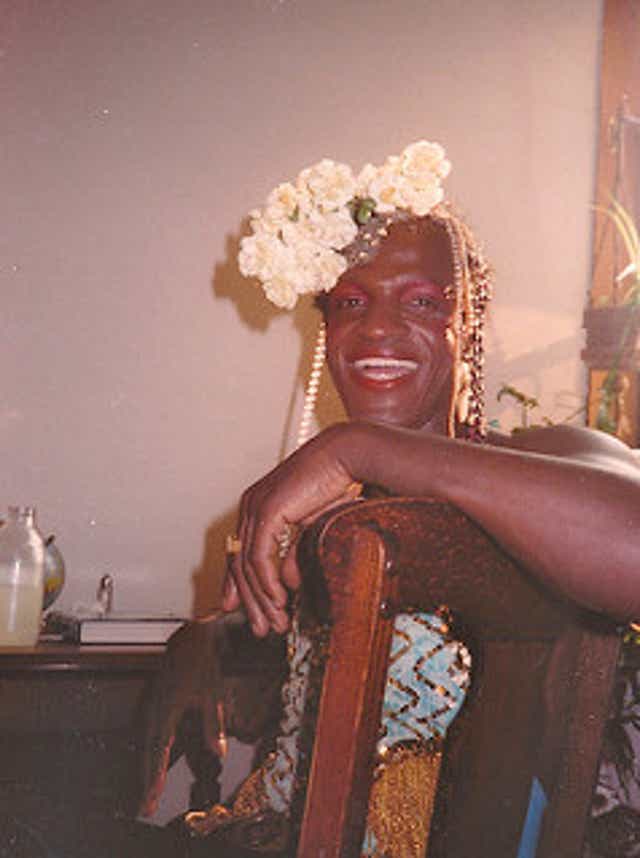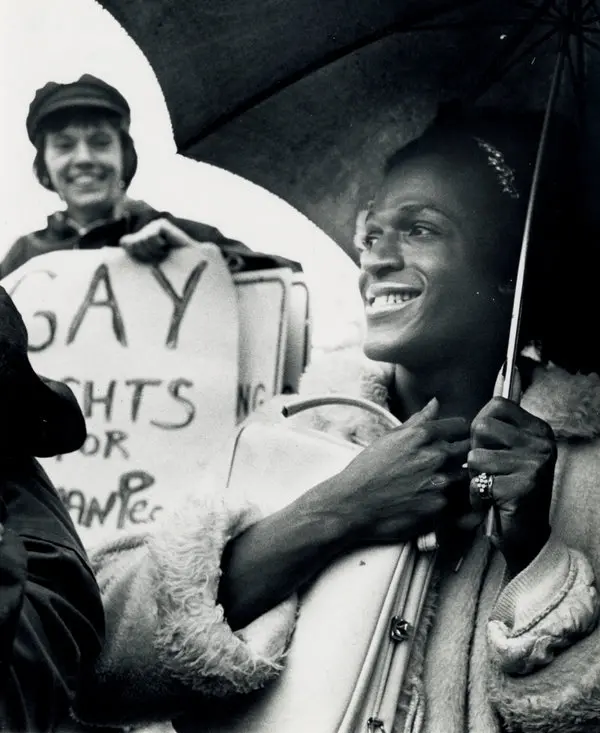When it comes to Black History Month, few figures dazzle quite like Marsha P. Johnson, a fearless drag queen, transgender activist, and essential catalyst of the Stonewall Uprising.
Known for her bold fashion sense and a personality to match, Marsha was born Malcolm Michaels Jr. and became one of the first self-identified drag queens in the United States. Yet, it was her unshakeable dedication to LGBTQ+ liberation, and specifically to homeless transgender youth, that would forever solidify her as an icon.
Marsha, born Malcolm Michaels Jr., was one of six siblings and came into the world on 24 August 1945 in Elizabeth, New Jersey. Her father was employed on an assembly line at General Motors, and her mother worked as a housekeeper. The family was active in an African Methodist Episcopal Church, where religion played a significant role in Marsha’s upbringing, and her faith remained a key aspect of her life. From an early age, Marsha was drawn to feminine clothing and started wearing dresses when she was five; however, bullying from local boys caused her to hold back her self-expression for a period.
At 17, Marsha realized she could embrace her feminine identity and sexuality only after leaving New Jersey for New York City. Arriving in New York in 1966 with only $15 and a suitcase full of clothes, Marsha chose to make her home in Greenwich Village. There, she was introduced to a vibrant gay community, which empowered her to come out. As she began to delve into her identity through drag, Marsha adopted the drag queen name ‘Marsha P. Johnson.’

One of the most memorable things about Marsha is the story behind her middle initial, “P.” Whenever asked what it stood for, she’d cheekily respond, “Pay it no mind.” It wasn’t just a catchphrase but a way of life for a woman who refused to let society’s opinions dictate her identity. This unbothered attitude would serve her well in the late 1960s, an era when both racial prejudice and homophobia were rampant.
In June 1969, the Stonewall Inn in Greenwich Village, New York City, became the backdrop for a historic confrontation between law enforcement and the LGBTQ+ community. Marsha, known for her distinctive style and passionate spirit, played a crucial role in the subsequent protests that sparked the modern movement for LGBTQ+ rights. It is said that she was one of the first individuals to resist the police raid, personifying the bold bravery that came to symbolize the legacy of Stonewall.
Marsha’s influence extended beyond Stonewall. Together with fellow activist Sylvia Rivera, she helped establish S.T.A.R. (Street Transvestite Action Revolutionaries), a group that offered shelter and assistance to homeless transgender youth, individuals who were often overlooked even within the LGBTQ+ community. During a time when acceptance was minimal, S.T.A.R. served as a symbol of hope, providing young trans individuals with the opportunity to feel safe, acknowledged, and loved.

Marsha’s colorful outfits and lively personality attracted many admirers, including renowned artist Andy Warhol, who included her in his “Ladies and Gentlemen” photography series. However, beneath the glitz and the photographs, she was deeply dedicated to activism. Whether she was participating in Pride parades, speaking out in front of officials, or simply being a supportive friend, Marsha P. Johnson exemplified the conviction that everyone is entitled to dignity—regardless of their gender identity or financial situation.
